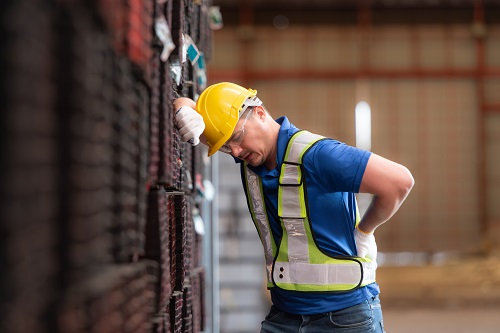Robust regulatory frameworks that prioritise worker safety and wellbeing must be proactively developed to keep pace with the artificial intelligence (AI) revolution and avoid a race to the bottom on AI safety standards, according to a new white paper published by British Safety Council.
News
British Safety Council white paper calls for proactive policies to keep workers safe as AI deployment grows
A global framework aligned around an agreed set of values that put human health, safety and wellbeing first, together with well thought-out domestic regulations that can respond to the present and future risks posed by new and developing technologies, would help harness the benefits of AI while mitigating its dangers, the paper said.
 British Safety Council: "At no other time in history has technology offered mankind such promise or posed such existential risk." Photograph: iStock
British Safety Council: "At no other time in history has technology offered mankind such promise or posed such existential risk." Photograph: iStock
British Safety Council’s ‘Navigating the Future: Safer Workplaces in the Age of AI’ white paper also emphasised the need for balanced discourse and the avoidance of sensationalism when it comes to discussing AI, in order to focus on practical solutions that address real-world issues, rather than on extreme, fear-based scenarios.
“At no other time in history has technology offered mankind such promise or posed such existential risk,” said the paper, noting that “AI is here, and it’s here for the long haul”. There is no hiding from AI, and the more proactive policymakers are in preparing for it the more chance there is that workers will benefit from the advantages it offers.
“As AI continues to be integrated into every aspect of our professional lives, it is vital that we remain vigilant against potential risks and misuse,” the document stated. “By doing so, we can harness the benefits of AI while mitigating its dangers.”
British Safety Council’s recommendations respond to five challenges it has identified as having the potential to profoundly impact workers and workplaces of the future. The first is that public discourse “leans towards extreme scenarios that fail to grapple with the actual problems that workers will face”. The second challenge is the need for a strong, global regulatory framework for AI development and deployment, with the third challenge being that a lack of agreed values “could lead to a rowing back of standards, putting workers at greater risk”.
Challenge number four is that AI is already exposing workers to risk, with allegations that contractors in Kenya have been exposed to harmful and degrading online material while training OpenAI’s ChatGPT models.
“This training of AI models today may make for a safer future in which workers and contractors are no longer required to do this kind of work, but should the promise of long-term benefit override the harms we know are being done today?” asks the white paper.
The fifth challenge relates to the need for regulatory review to ensure that domestic legislation and regulation can respond to the challenges of the future.
“The UK’s health and safety regime is a world leader, serving as an inspiration to nations around the world and delivering safer and healthier workplaces at home,” said the paper. “How this regime responds to the risks posed by new and developing technologies is a key question for practitioners, campaign groups and regulators.”
To read the white paper in full, click here.
NEWS

Nation in declining health as UK marks pandemic anniversary
By Belinda Liversedge on 25 March 2025
Around one in seven (14 per cent) UK adults have experienced a long-term health condition because of the virus.

Review leader says “new era of workplace health” must solve long-term sick crisis
By Belinda Liversedge on 20 March 2025
Employers must “adapt with the times,” the leader of a major government review has urged, which confirms record numbers of people suffering from work-limiting health conditions and increasing joblessness due to mental ill health.

Intervention is key, says PwC as 4.4m more workers set to leave labour market
By Belinda Liversedge on 17 March 2025
Considering leaving work has "gone mainstream" says a new report, with one in 10 UK workers actively considering leaving work with mental health the main driver.



